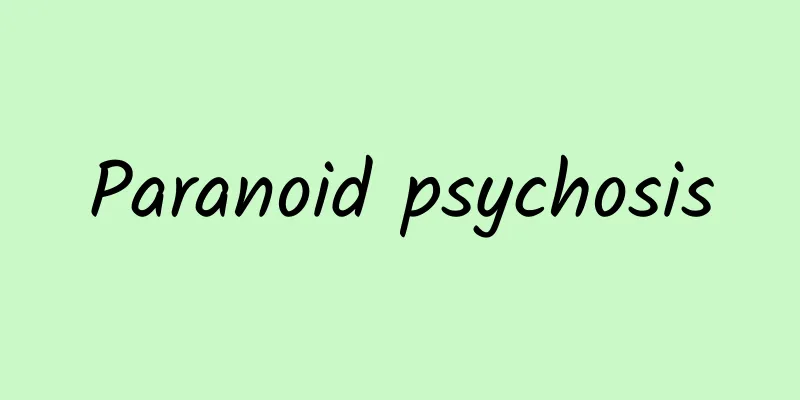Can I drink green tea if I have high blood pressure?

|
Green tea is a relatively important type of tea and is also a tea that many people like to drink. Practice has also proved that drinking green tea regularly can improve many health conditions of the human body, especially improve diseases of the cardiovascular and cerebrovascular system and promote the health of the cardiovascular system. For patients with hypertension, drinking green tea is very good, but there are certain requirements for them when drinking green tea. 1. Hypertensive patients should pay attention to drinking tea Patients with hypertension should drink tea in moderation and avoid strong tea. Because the caffeine in strong tea excites the central nervous system, making people excited and insomniac, speeding up the heart rate and increasing the burden on the heart, it is not conducive to rest and is not good for patients with hypertension. 2. Green tea and oolong tea are suitable for patients with hypertension Recent studies have found that drinking tea can reduce the chance of high blood pressure. If you drink more than 120 ml of green tea or oolong tea every day for more than one year, your risk of developing high blood pressure will be reduced by more than 40% compared to those who do not drink tea. 3. Don’t drink too much A large amount of fluid entering the blood vessels will itself increase the burden on the heart. In addition, the caffeine and theanine in tea are stimulants, which will increase the human heart rate and blood pressure. The elderly have poor heart function, especially those with coronary heart disease, cor pulmonale, and hypertension. Drinking too much tea will cause uncomfortable symptoms such as chest tightness and palpitations. In addition, drinking a lot of strong tea will dilute the gastric juice and reduce the concentration of gastric juice, thereby causing symptoms such as indigestion, abdominal distension, and abdominal pain. The elderly with poor stomach should pay special attention to this. 4. Don’t drink before bed Tea has a refreshing and diuretic effect. The elderly all have sleep disorders to varying degrees, so don't drink tea at night to avoid excitement, insomnia, polyuria, and affecting sleep quality. It is not advisable to drink tea within 2 hours before going to bed. If you are thirsty, drink boiled water instead. 5. Do not drink when taking medicine The tannins and theanolide in tea can react chemically with certain drugs. In particular, the elderly should not take hypnotic, sedative and other drugs, as well as iron-containing blood tonics, enzyme preparations, protein-containing drugs, etc. with tea to avoid affecting the efficacy of the drugs. Chinese medicinal herbs such as ginseng, Codonopsis pilosula, Corydalis yanhusuo, Datura, Cyathula officinalis, Ephedra, Uncaria rhynchophylla, and Coptis chinensis should not be mixed with tea. 6. Do not drink overnight It is better to drink tea immediately after it is brewed. If tea is left for a long time, not only will its health benefits be weakened, but its taste will also be greatly compromised. If the tea is left for too long after brewing, it will deteriorate due to oxidation and microbial growth, and drinking it will be harmful to the body. Therefore, you should never drink overnight tea. |
<<: Can I eat Gastrodia elata if I have high blood pressure?
>>: There is a lump of flesh in the nose
Recommend
Swollen lymph nodes in the neck
Lymph nodes are very important immune organs in t...
Laser treatment for melanin
The symptom of melanin deposition may occur in ev...
What is the correct way to apply aloe vera gel?
In life, aloe vera gel is not unfamiliar to ladie...
What to do if you have hepatitis? Treatment of hepatitis
Hepatitis is contagious to a certain extent, so o...
Why is my appetite decreasing?
Your diet is usually normal, but if your appetite...
Severe heat stroke symptoms
Heatstroke mainly refers to a disease caused by p...
How long does it take for the fetus to die due to lack of oxygen?
Women often experience many symptoms when they ar...
Is acupuncture useful for ligament injuries?
Ligament is a relatively important part of the hu...
What should pregnant women do if they have stretch marks?
The body of a pregnant woman will undergo great c...
Postpartum sweating is particularly easy
After giving birth, women need a long time to rec...
Symptoms of acne folliculitis
Acne folliculitis is a relatively common disease ...
I can't sleep at noon and my heart is beating very hard
If palpitations do not occur due to intense exerc...
What is the reason for the high blood count of the baby?
The baby's blood count is high, which means t...
Mugwort plus one other thing can cure neck, shoulder, waist and leg pain! Twice is enough.
In spring, the humidity is heavier, and many old ...
Special Chinese herbal medicine for treating tinea pedis and tinea manuum
Tinea pedis and tinea manuum are relatively commo...









